- Basinikonda, Madanapalle, Annamayya (Dist), AP, Pin - 517325.
- imforupvtltd@gmail.com
About Emu Farming....
EMU Farming: An Overview
Emu farming is the practice of raising emus—large, flightless birds native to Australia—for their valuable by-products, including meat, oil, leather, and feathers. Known for their resilience and ability to thrive in diverse climates, emus are increasingly becoming a popular choice for alternative livestock farming. With proper care and management, emu farming can be a lucrative and sustainable agribusiness. Here’s an in-depth look at what it involves:
Key Aspects of Emu Farming:
1. Emu Products
Emus are highly valued for their diverse and marketable by-products:
Meat: Emu meat is a healthy alternative to traditional red meat—low in fat, high in protein, and rich in iron.
Oil: Extracted from emu fat, emu oil is widely used in skincare and therapeutic products due to its anti-inflammatory and moisturizing qualities.
Leather: Emu leather is tough yet supple, commonly used in making wallets, belts, shoes, and other accessories.
Feathers and Eggs: Emu feathers are used in arts, crafts, and décor. Their large, dark green eggs can be consumed or sold as ornamental items.
2. Farm Setup
Creating the right environment is key to maintaining healthy, productive emus:
Fencing: Use strong, durable fencing at least 6 feet high, as emus are strong and capable of jumping.
Shelter: Emus don’t need elaborate housing—a basic open-sided shed is enough to provide protection from rain, sun, and cold.
Space: Emus thrive with room to roam. Allocate at least half an acre for each pair to allow natural movement and grazing.
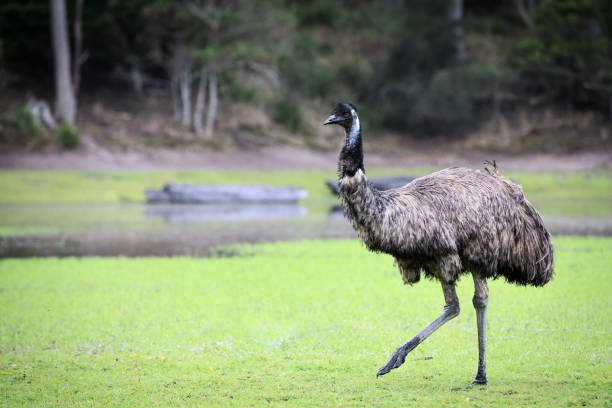
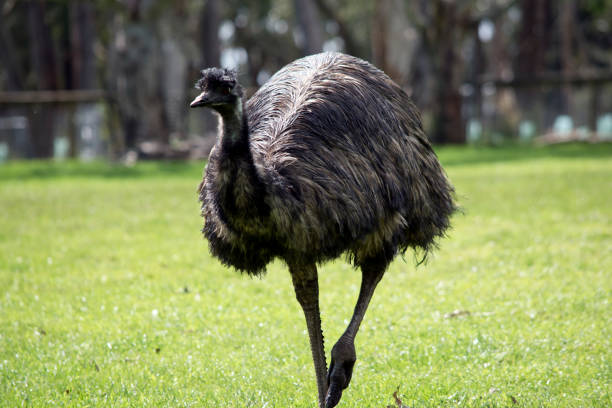
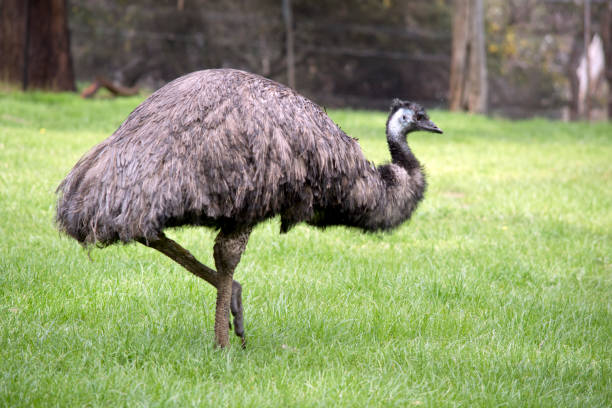
3. Feeding and Nutrition
A balanced diet is essential to keep emus healthy and productive:
Diet: As omnivores, emus enjoy a varied diet that includes plants, seeds, fruits, insects, and small animals. To ensure optimal growth and health, provide a mix of commercial emu feed, grains, and fresh greens.
Water: Always ensure a constant supply of fresh, clean water to keep emus hydrated and healthy.
4. Breeding and Incubation
Effective breeding and care of eggs are vital for a thriving emu farm:
Breeding Season: Emus typically breed during cooler months, though the specific timing may vary based on location and climate.
Egg Incubation: Emu eggs require precise conditions, including consistent temperature and humidity, which are usually maintained using incubators.
Chick Rearing: Once the chicks hatch, they need warmth, balanced nutrition, and protection from predators to grow strong and healthy.
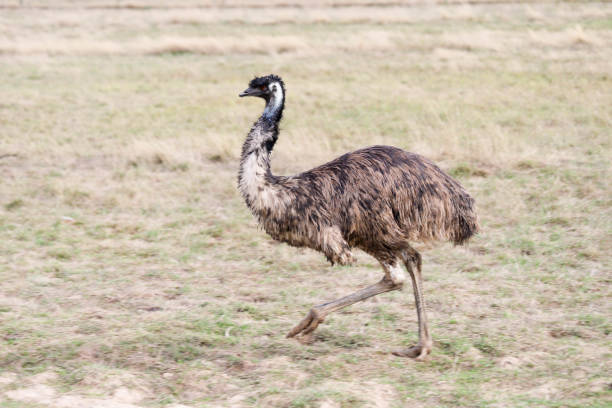

5. Health Management
Ensuring the health of emus is key to their productivity and longevity:
Regular Monitoring: Conduct frequent health checks to spot early signs of illness or stress.
Vaccinations and Treatments: Administer appropriate vaccines and treatments to protect against diseases.
Parasite Control: Regularly inspect emus for internal and external parasites and take measures to control infestations.
6. Harvesting and Processing
Proper harvesting and processing are essential for high-quality emu products:
Meat Processing: Emu meat should be processed in facilities that adhere to health and safety regulations, ensuring quality and compliance.
Oil Extraction: Emu oil is harvested from the bird’s fat and processed for use in various therapeutic and cosmetic products.
Leather Processing: Emu hides are carefully processed into durable leather, used for fashion accessories and other high-quality goods.

7. Economic Considerations
With proper management, emu farming can be a profitable venture:
Market Research: Understand both local and global demand for emu products to target the right markets.
Cost Management: Effectively manage expenses related to feed, healthcare, and farm infrastructure to maximize profitability.
Value Addition: Enhance profits by processing emu products such as oil, leather, and premium cuts of meat for added value.
8. Environmental Impact
Emu farming can be environmentally sustainable with the right practices:
Sustainable Practices: Incorporate eco-friendly methods, including organic farming techniques and recycling waste materials.
Land Management: Implement effective grazing and land management strategies to prevent overgrazing and preserve soil health.
Encouragement for Small-Scale Emu Farming Investment
Dear Aspiring Emu Farmer,
Embarking on an emu farming venture, even on a small scale, offers an exciting and profitable opportunity. Here’s why you should consider investing in emu farming:
Diverse Revenue Streams:
Emus offer a variety of valuable products, including meat, oil, leather, feathers, and eggs, giving you multiple income opportunities.
Each product caters to different markets, increasing your potential for profitability.
Health Benefits and Growing Demand:
Emu meat is a lean, high-protein alternative to traditional red meats, making it appealing to health-conscious consumers.
Emu oil, known for its anti-inflammatory and moisturizing properties, is in high demand in the cosmetics and wellness industries.
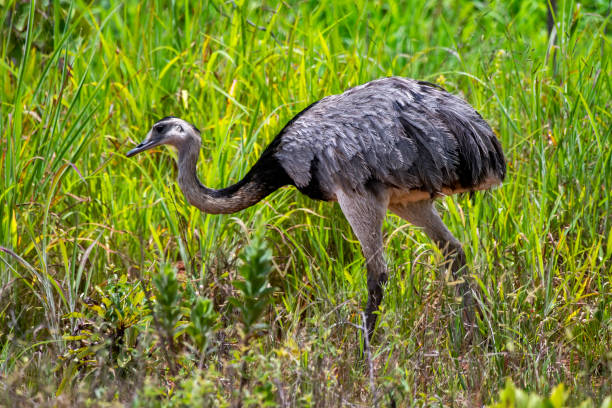

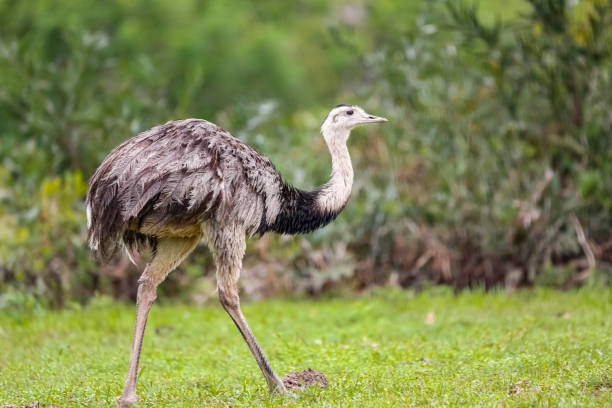
Adaptability and Low Maintenance:
Emus are resilient birds that thrive in a variety of climates and require minimal upkeep.
With their long productive lifespan, they offer consistent returns for many years.
Sustainable and Eco-Friendly:
Emu farming can be environmentally sustainable when managed with proper land and waste practices.
These birds contribute to biodiversity and can coexist harmoniously with other farming activities.
Taking the First Steps:
Start Small: Begin with a small, manageable flock of emus and gradually expand as you gain experience.
Education and Training: Take advantage of agricultural extension services, online courses, and local farming communities to enhance your knowledge.
Plan and Budget: Create a comprehensive business plan and budget to guide your investment decisions and ensure long-term growth.
Always remember, every successful emu farm began with just one step. With your passion, perseverance, and strategic investments, you’re building the path to a rewarding future in emu farming. Welcome the challenges and take pride in every achievement—each step moves you closer to realizing your farming goals.
Wishing you the best of luck in your Emu farming journey!
Warm regards,
Valipi Reddy
C.E.O, IMFORU PVT. LTD
